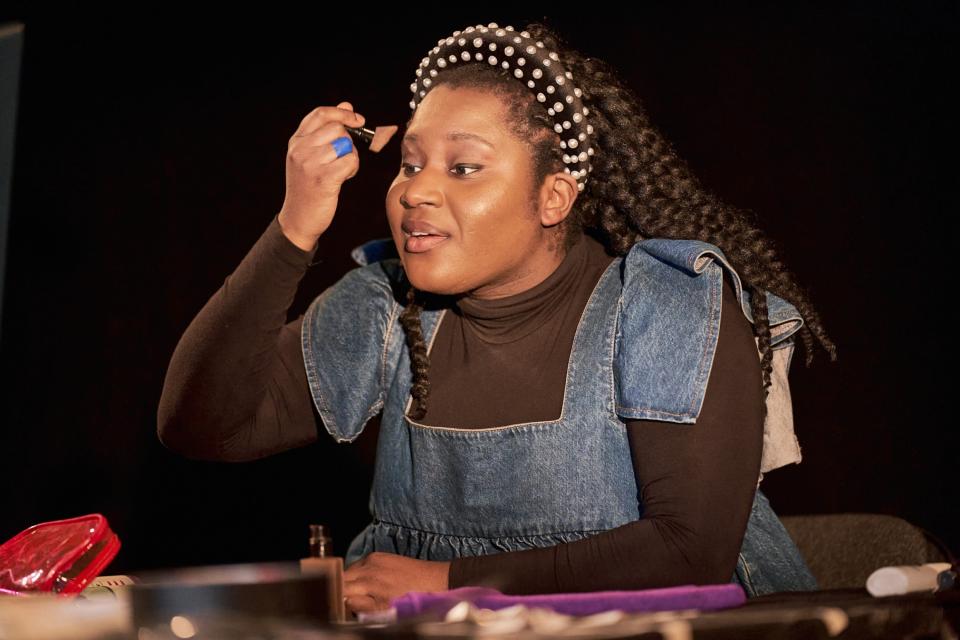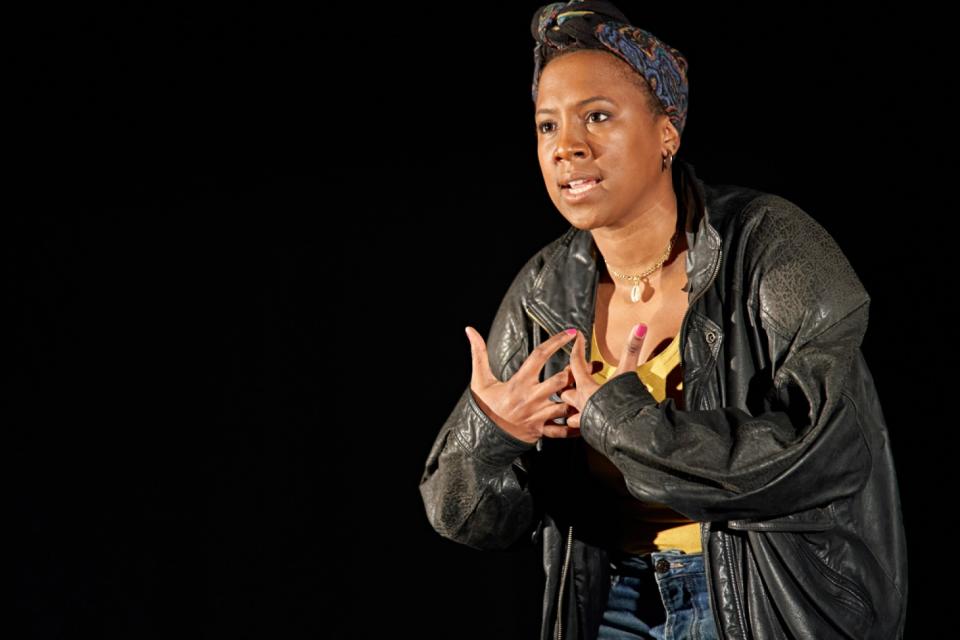Old Vic’s One Voice for International Women’s Day: Susan Wokoma and Jade Anouka deliver powerful monologues

Susan Wokoma in Putting a Face on
(Manuel Harlan)“It’s not like he hits me,” is one of the many quietly devastating lines in Putting a Face On, the first of two monologues commissioned by the Old Vic for International Women’s Day and streaming free online. Kiri Pritchard-McLean’s soliloquy, which she also directs, features the affecting Susan Wokoma as a professionally-respected, popular, self-assured woman slowly realising how she’s been gaslit and controlled by her partner during lockdown.
Low key and naturalistic, it’s paired with the more poetic Aisha (the black album), an exploration of race and American politics written by Regina Taylor, directed by Tinuke Craig and performed by the mighty Jade Anouka. The first work lasts 20 minutes, the second just seven: together they make a brief but powerful impression. They’re also, I think, the first works I’ve seen that directly acknowledge the pandemic.
Wokoma’s character escapes from domestic arguments by watching videos that combine makeup tutorials with true crime murder stories. As she applies foundation, she rationalises: her partner isn’t an actual killer, so she can’t really complain. She can’t leave him as he’s just been made redundant. Or she can’t leave him because it’s Christmas. And it’s probably her fault if “money’s disappearing” and they fight all the time.
What makes the speech so effective is that the horrifying words are delivered in tones of amused confidence. It’s clear her abuser uses the character’s strength against her, that the embarrassment of asking for help outweighs her fear of staying. “There is no one way a victim should look,” she tells us. Wokoma’s navigation of her shifting perspectives is sublime. The ending, sadly, strikes a clumsily obvious note of hope.

Anouka’s blazingly furious young American woman in the second monologue is also nameless, but at least we know her age. She turned 18 just before the 2016 presidential election but chose not to exercise the right to vote, so painfully hard-won by her ancestors. Her generation thought the fight against racism was over and done. Now the plague-stricken streets are on fire and she’s heading out to assert, with weary rage, that black lives matter: “If not me,” she asks, “then who?”
Taylor’s script namechecks civil rights icons and references the lynchings that inspired Billie Holiday’s Strange Fruit. Though lyrical in form it’s a straight shot of emotion that Anouka delivers directly into your face. These two very different monologues emphasise the strengths of the format – intimacy, economy, focus. And also the weaknesses – a lack of texture and incident, the necessity of brevity when there’s only one voice speaking. One thing’s for sure: those who predicted the theatre would lapse into escapist entertainment in response to the pandemic were dead wrong.
Until 31 March: youtube.com/user/OldVicTheatre/videos

 Yahoo Finance
Yahoo Finance 